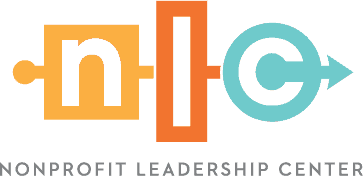I just don’t have the resources in my budget. I can’t afford to be away from the office that long. We have too much on our plate right now to fit anything else in. These are some of the common responses nonprofit leaders share when it comes to prioritizing professional development. But did you know that more than half of nonprofit managers say they don’t have the knowledge, experience and resources to be successful? While 96% of nonprofit leaders are interested in receiving leadership and managerial training, our sector spends less than a half of 1% on leadership development initiatives. With shrinking budgets and increasing responsibilities, how do you choose what kind of nonprofit training to invest in? Is face-to-face learning or online learning better?
To answer these questions, we must look beyond cost and convenience to long-term value and impact.
Is face-to-face learning or online learning better for nonprofit leaders?
In our technology-driven, post-pandemic world, professionals are looking to online learning to minimize costs and maximize convenience. But the measure that matters most when it comes to professional learning is whether it changes how you perform in your professional role to solve real-world problems outside the learning environment.
The Nonprofit Leadership Center offers both face-to-face learning and virtual training for nonprofit leaders. From classroom and custom training to intimate peer-based learning groups, we believe knowledge gained and shared collectively fosters leadership.
Here are three reasons face-to-face learning is can be more effective than online learning when it comes to nonprofit training:
1. Relationships deepen results.
Nonprofit success is built on strong relationships — with board members, donors, constituents and funders. We are stronger when we can access a network of colleagues to support us in making decisions, implementing new programs or shifting strategic direction. These relationships are built by spending time together, by learning together and by sharing common experiences.
Research conducted at Florida International University on learning delivery preferences found participants placed importance on social environments, groups and peers along with networking and intimacy of connectivity as key elements of relationships in learning.
While it’s not impossible to connect with someone digitally, the magic happens when people are face-to-face in the same space.
2. Information isn’t a substitute for experience.
Tackling our communities’ biggest issues requires collaboration, conversation and creativity. There are many ways to solve the same problem, and none of us have all the answers when it comes to raising money, increasing awareness, reaching new audiences, working with board members, pitching funders and creating organizational culture. There isn’t a one-size-fits-all approach to learning. Being able to talk with others who have gone through similar experiences and learn what did and didn’t work provides rich context and counsel that online learning alone can’t always provide. The ability to ask deeper questions, seek feedback from others and pressure-test ideas is something best done through human interaction and group dialogue.
3. Practice enhances performance.
Through face-to-face nonprofit training — especially multi-part sessions — participants can test what they learn through real-time engagement. From group role-playing to developing plans and deliverables for experts and peers to assess and discuss, face-to-face learning allows leaders to apply principles and strategies to real situations in real-time, gaining constructive feedback, guidance and ideas for enhancement.
Attend an Upcoming Nonprofit Training Event
The Nonprofit Leadership Center offers nearly 100 nonprofit training classes and learning experiences each year for nonprofit professionals, covering everything from leadership, management, board governance and finance to marketing communications, fundraising and HR. Join us for an upcoming class, or explore custom solutions for your organization.
Sources: 1) Nonprofit Standards, A Benchmarking Study: BDO (2018), 2) ProInspire Managing for Success Study (2014), 3) Sanders, Tammy S., “A Value-Driven Exploration of Online & In-Person Learning for Professionals (2016). FIU Electronic Theses and Dissertations. 3053

